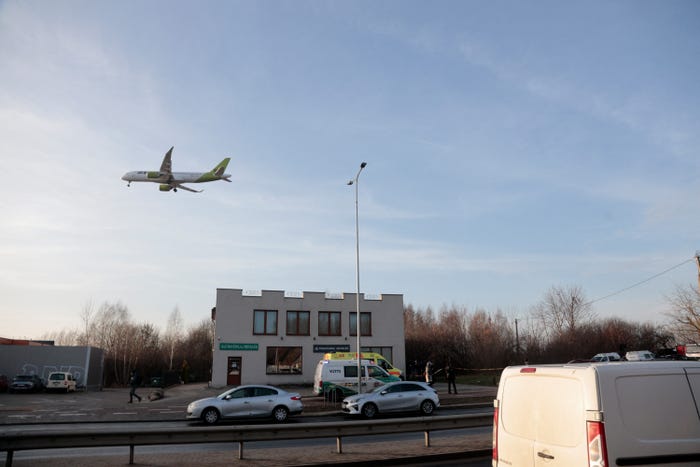BREAKING: Lithuania has closed Vilnius Airport for the third consecutive night due to balloons flying in from Belarus, marking an escalating security concern for the NATO ally. This urgent decision, announced on Sunday evening, affects approximately 47 flights from 9:42 p.m. to 4:30 a.m. the following morning.
Officials confirmed that the balloons, suspected to be used for smuggling cigarettes, pose a serious threat to air safety. Lithuanian Prime Minister Inga Ruginiene criticized the Belarusian government, led by Alexander Lukashenko, for allowing these balloons to “run wild” across the border.
The situation has worsened, with reports indicating that a “large group of smuggling meteorological balloons” have been launched into Lithuania. These helium-filled balloons have already prompted airport closures in other cities, such as Kaunas.
In a statement from the Lithuanian government, officials noted that airspace restrictions were implemented in direct response to the balloons approaching Vilnius Airport. Ruginiene emphasized the need for immediate action, stating that Lithuania would temporarily close its borders with Belarus as its security council convenes on Monday to discuss further measures.
Authorities have been increasingly alarmed by such incursions. In September 2024, Lithuania reported that 250 balloons crossed into its territory in just one month. This trend has raised concerns among Baltic nations about airspace violations, particularly given the proximity of Belarus to Russia, which has been implicated in similar incursions.
Local officials reported detecting “several hundred markers” in the airspace, suggesting a surge in balloon activity used for smuggling operations. Many of these balloons are equipped with GPS trackers and SIM cards, allowing their cargo to be tracked and complicating efforts to manage airspace safety.
This year alone, more than 100 people have been arrested for air smuggling, with 20 convictions already secured. Lithuanian authorities have called on technology and defense companies to propose solutions for tracking and neutralizing these balloons.
The growing urgency surrounding air security in Europe has been heightened after a series of drone incursions over Poland, with NATO allies, including Denmark, also reporting similar threats in recent weeks. The situation is reminiscent of incidents last summer when South Korea accused North Korea of using balloons to spread garbage across its territory.
As Lithuania grapples with this immediate threat, the international community watches closely for developments. With the security council meeting scheduled for Monday, all eyes are on how the nation will respond to this escalating issue.
Stay tuned for further updates on this rapidly developing story.







